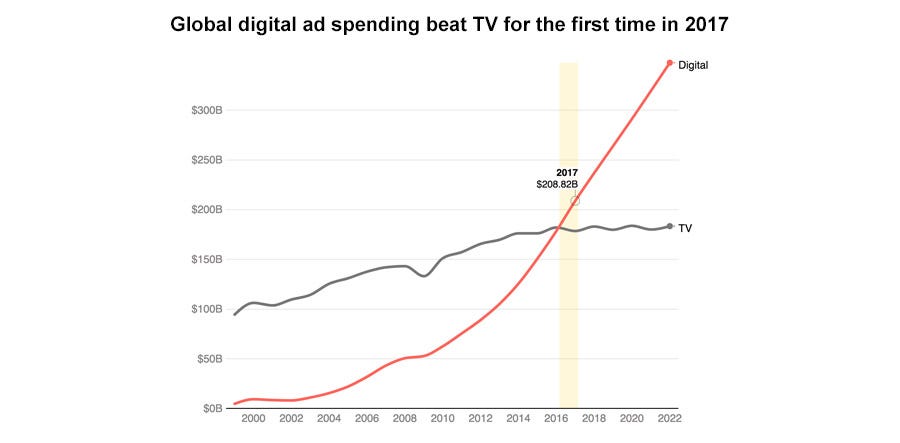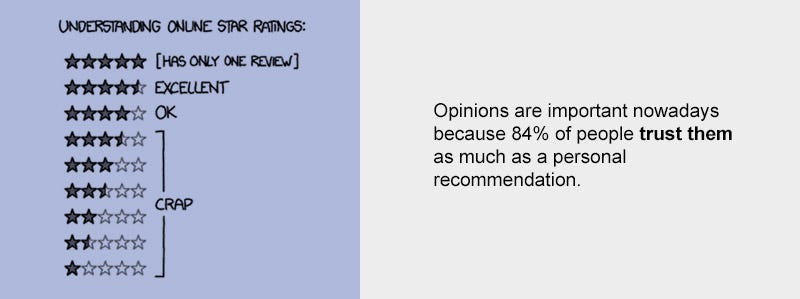Latest news about Bitcoin and all cryptocurrencies. Your daily crypto news habit.

The value of one’s opinion has increased once social media appeared. So what’s coming next? Before we get into that, though, let’s rewind for a bit. Ten years ago, it was pretty hard to become an opinion leader — there were only the message boards similar to Reddit where people shared their opinions, and it was chaos. It was pretty impossible to follow one particular user and everyone’s opinions were scattered around and hard to find. This all changed with the creation of social networks. In 2004, when Facebook was launched, people were given a channel to express their opinions and thoughts globally. Eventually some people started to gain followers who listened to them and they became opinion leaders (also known as influencers.) The growth of YouTube and Instagram, two platforms with an emphasis on visual content, only made this trend stronger.
Now there are thousands of opinion leaders and many of us, mostly millennials, like to know what they wear, what gadgets they use, what food they eat. Some people don’t care about YouTubers or online celebrities, but they might be interested when some of their friends recommend a product, and that has changed the way we interact and the way we act as consumers.
Sadly, large e-commerce platforms ignore that change — they take into account the interests of users by analyzing large chunks of data, but they don’t try to use other levers that may influence their decisions. With decentralization, that might change. Winnest and others blockchain-based projects can help us to make money by sharing our opinions online. Do you want to know how? Read further and find out!
Opinions are more trusted than ads
In this day and age, it’s not easy for any brand to stand out among the others and win over consumer attention — the advertising space has become too crowded. An average Internet user sees around 5,000 ads per day, and their brains develop banner blindness, filtering out any ads. Other users use ad blockers and some users even try Brave browser, which natively blocks ads, leaving no chance for an advertiser to get to the consumer.
At the same time, there’s another option for brands wanting to successfully promote its products — leave it to the existing customers! Opinions are important nowadays because 84% of people trust them as much as a personal recommendation. At the same time, 64% need to read between one and six online reviews to form an opinion.
Why is opinion sharing so appealing to many people? The Internet is currently inhabited by the younger generations — millennials and generation Z. They have different values and they are always ready to recommend something they like and talk about something they don’t like. Also, they like to rate everything because nowadays “it’s all about ratings.” Thus, sharing opinions on the Internet is perfectly natural for them.
Where does all this sharing happen?
One of the most visited platforms for reviews is Yelp. It has over 145 million average unique monthly visitors and 163 million reviews of businesses.
Another popular platform for reviews is Bazaarvoice — having over 4.5 million unique visitors per month and they allow e-commerce companies to integrate the Bazaarvoice platform into their marketing, providing tools for collecting reviews, gathering feedback, and keeping it all in a centralized database. The only disadvantage for a business is that the platform has complete control over all the data.
Of course, we can’t exclude Amazon Customer Reviews from this list. Amazon is the biggest e-commerce platform, having a yearly revenue of $3.03 billion in 2017. More than 197 million users visit the site monthly, so the reviews for the products listed on the platform are quite handy given all those statistics we’ve already seen. At the same time, not all of them are genuine — Amazon has a program allowing businesses to order paid reviews. The same problem with fake reviews haunts Yelp, Google, Facebook. There’s still no way to tell a genuine review apart from a paid one, but this problem can be solved by introducing decentralized blockchain solutions.
Blockchain for social platforms
Blockchain technologies are still in the development phase, but it’s already clear that they have the potential to transform finances, bureaucracy, supply chains, e-commerce, and many other areas, including social networks. The immutability of the blockchain ledger has the quality of eliminating the trust issues found within a network, and trust is very important when we’re talking about online reviews.
By using the blockchain in e-commerce we can address the following problems:
- Fake reviews — Every user’s identity would be assigned to a specific and unique profile via a decentralized digital identity, and it would be impossible to create a fake one.
- Centralized storage of customer reviews and data — All data would be stored in a decentralized manner and not a single entity is in control of that data.
- Right now, bringing more value to a business by giving it a good rating, users get nothing. The blockchain would reward users with tokens for sharing their opinions and helping businesses grow.
Regular users will get an opportunity to earn money by sharing their honest opinions and their opinions will become more valuables. At the same time, advertisers currently receive less and less sales from regular display ads, so how can they change their marketing strategy?
The new reality for advertisers
Advertisers, companies, and brands usually tend to rely on centralized advertising platforms such as Facebook or Amazon’s inner advertising system in their marketing strategy, and in 2017 alone, advertisers spent $209 billion worldwide — this metric is expected to reach $269 billion in 2018. That’s too many ads for every single user, so users no longer care about the content of these ads.
In this environment, advertisers are forced to look for new ways for advertising their goods and services, and this task will be even more important when e-commerce moves to the decentralized economy. When we talk about decentralized platforms, advertisers have two options:
First option: Paying users directly to watch ads.
This option is a mutually beneficial relationship between a potential buyer and an advertiser. An advertiser pays their potential customer to make him/her watch the ad and they gain the opportunity to sell the product. This model has a chance to become popular, because users use more and more ad-blocker plugins in their browsers or even such browsers as Brave.
An average user spends 1 hour per day on various websites — so make them pay attention to your content by literally paying them and their all yours.
Second option: Using opinion leaders.
In a world where countless companies try to sell their products via millions of marketing activities, people need something to rely on when making a choice. Some people like to wear the same clothes as their beloved celebrities; for example, the same sneakers the Kanye West has or drink the same beverage as Katy Perry. Of course, this is popular right now with millennials and Generation Z, but in the near future they will represent the majority of the purchasing power.
For those who don’t have any interest in following celebrities, there’s another option — following the opinions of their friends and family. According to statistics:
- 23% of online shoppers are influenced by social media recommendations.
- 55% of online shoppers tell friends and family when they are dissatisfied with a product or company.
- 84% of online shoppers in the United States review at least one social media site before making a purchase
That’s where advertisers can make sales! Both mechanics are used by Winnest, a marketplace that allows its participants to use social media as the primary channel for promoting products. Those users who want to make money can recommend any product of their choice on their social media pages and get paid by companies when those products get purchased by their recommendation. In a decentralized environment, this model will have its obvious benefits:
- It filters out bad products. It’s unlikely that big influencers will risk their reputation by recommending low-quality goods and services, even in exchange for money.
- Advertisers would be able to cut their costs.
- Market participants won’t have to pay any fees to the platform (no centralized entity would be able to charge them.)
Overall, with Winnest customers will get the products cheaply and safely and have complete control over their data.
Another decentralized review platform, Lina Review, utilizes a slightly different approach. They allow companies to build their own review systems on top of their Lina Network. Instead of posting subjective opinions, Lina has a list of criteria for every field of business and every review has to contain an evaluation of the customer’s experience by these criteria in order to be counted as valid. Coupled with the developer’s kit, this makes Lina a platform with big e-commerce potential.
The social recommendations could become one of the main advertisement methods instead of shoving banners in the customer’s face. And it would be more subtle, much like native ads, that sell a lot better than display advertising.
A future where sharing is actually profitable
Okay, this was a small trip to the not-so-distant future. Will the decentralized economy get more participants? It will. Will the decentralized model overtake the market soon? That depends. Decentralization becomes efficient only if all participants are motivated to play their roles within the ecosystem. After all, for a common user or an advertiser it doesn’t matter if the system is centralized or not, it only matters if he or she earns something by spending time interacting with it.
People like to share and if they are getting a reward in return, that’s even better. Financial motivation coupled with an emotional motivation will keep us going further, and a decentralized marketplaces will help us build a new kind of economy that’s better for consumers and advertisers alike.
Commerce Advertising: Share your Opinion and Make Money was originally published in Hacker Noon on Medium, where people are continuing the conversation by highlighting and responding to this story.
Disclaimer
The views and opinions expressed in this article are solely those of the authors and do not reflect the views of Bitcoin Insider. Every investment and trading move involves risk - this is especially true for cryptocurrencies given their volatility. We strongly advise our readers to conduct their own research when making a decision.





